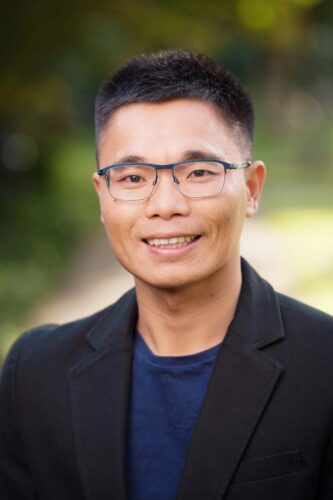By Karen Young
As we enter March, it is nearly the one year mark since Toronto went into the first lockdown due to the COVID-19 outbreaks. The city experienced an increase of anti-East Asian racism early on in the outbreak after early cases of COVID-19 were traced back to Wuhan, China and a local professor has been studying those impacts through his research initiative The Asian Experience Project.
Assistant Professor Cary Wu has been teaching at York University over the past year and has been studying how COVID-19 has been affecting the well-being of the Asian community in North America.
One of Wu's students shared an incident with him when he was still teaching in person in the spring. She explained that some people would just push her during the pandemic. He shares that incidents like this are what motivates his anti-Asian racism research.

Professor Cary Wu launched The Asian Experience Project earlier in the pandemic. Headshot courtesy of Cary Wu.
Wu and his colleagues describe COVID-19 as a “shadow pandemic.” While there are a few definitions of a “shadow pandemic” globally due to the rise in anti-East Asian hate crimes, it is referencing the rise in anti- East Asian sentiment.
Wu shared insight on alleviating anti-East Asian discrimination in reporting. He emphasizes the importance of not only objective reporting, research and data collection, but also institutional education and socialization to combat generational racism.
“Historically, when we look at one generation to another when we look at those issues of racism, a lot has to do with socialization or institutional education...We need to find ways to start early in school,” Wu says.
In his research, Wu has also noticed a difference in the mental health gap between the Asian and white communities in Canada. In general, there were reports of poor mental health due to COVID-19 and the rise of anti-East Asian racism.
Within the Asian community, there was also a gap between Asian-Canadians and Asian immigrants — "Asian-Canadians" refers to those of Asian descent who were born in Canada, while "Asian immigrants" refers to those with Asian descent who were born outside of Canada. The effects of discrimination on Asian-Canadians could have a stronger negative impact on their mental health when compared to Asian immigrants.
"This is their home. This is their country. If they were treated unfairly in their own country those kind of experiences could have stronger, negative impact on their mental health," Wu explains.
The Asian Experience Project is an ongoing research project by Wu and his team. It aims to hear both positive and negative experiences during COVID-19 from those that self-identify as Asian. The goal is to look at the direct and indirect racism on the Asian community. It also aims to further understand the mental health gap between Asian-Canadians and Asian immigrants.
To learn more about The Asian Experience Project and Assistant Professor Cary Wu’s other research projects, visit the link here.
Listen to the full interview below. It is the first in a four-part series on the effects of global pandemic on the Asian community in Canada.


